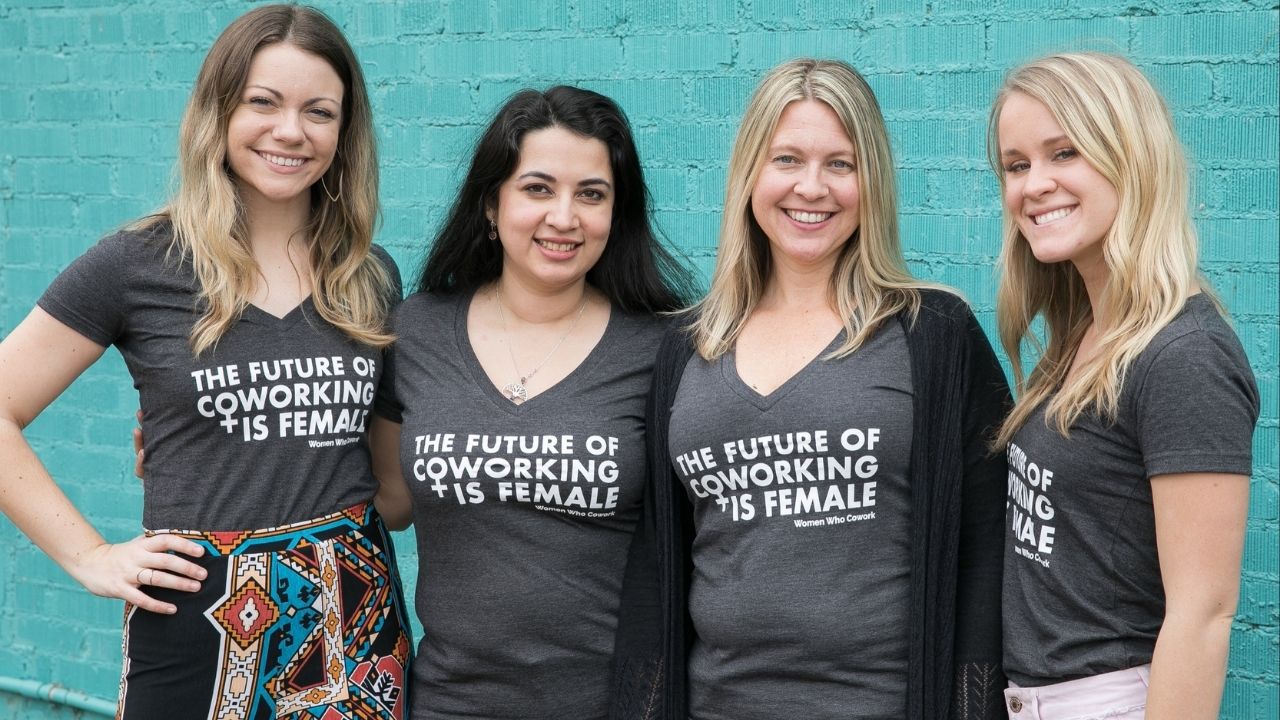- Several women-owned and women-centric coworking spaces shut down their doors permanently during the pandemic; their male-owned counterparts thrived.
- Women face systemic challenges that made it harder for them to keep their businesses afloat during the pandemic.
- “When coworking spaces have a very high female membership and all those women start closing their businesses, there are potential ripple effects.”
Female-centric coworking spaces struggled to stay open when the pandemic took hold. With no way to continue forward, these women-focused spaces began closing or being sold off.
With more than 10,000 spaces around the globe, the $12 billion coworking industry will be here for the foreseeable future. Between 2016 and 2019, women-focused communities were opening up everywhere – particularly in the form of physical spaces.
From the Riveter in Seattle to Link Coworking in Austin, they provided women access to remote workspaces and encouraged individuals to connect, learn, and expand their networks.
Up until March 2020, the growth for these communities seemed unstoppable.
But then the pandemic hit. Professionals began working remotely—specifically from home—and these spaces were left with mounting rents to deal with. Many women-owned spaces saw their entire business model hit a wall while revenues hit extreme lows.
The Riveter had expanded rapidly to nine spaces with plans to add more locations nationally, but by the end of June last year it announced it was closing all of its existing spaces and would move to an entirely online format.
Many more women-owned spaces closed down or were sold due to the economic fallout of the pandemic, but some of these businesses were sold pre-pandemic.
The question is: Why?
Liz Elam, founder of Link Coworking, felt as though she either needed to take her business national or sell it; part of the reason being that at the time there were about 70 coworking spaces in Austin. Link Coworking had many competitors, but her other company GCUC had none. GCUC is a female-centric global coworking community rooted in 30 conferences around the world.
Liz felt as though she needed to focus on the conference business, not the coworking business, so she sold Link Coworking to Nick Clark from CommonDesk in early 2019.
“The men get the money for franchising and growth…and the women don’t. Men give men money first. It’s not a fault of theirs (women’s), but just the way the industry is and has been for so long, so there’s a lot of things that are making it harder for women,” Liz told Allwork.Space.
As much as Liz has seen women-owned coworking spaces in her city of Austin go away, she’s seen many come up in Houston.
“There are women’s spaces thriving all over the world. But I also wanted to put a spotlight on the fact that it’s changing to male centric,” Liz said.
When Liz was looking for funding for GCUC, she spoke to a woman who was the head of mergers and acquisition for a large company.
“She said to me, ‘why did you wait to ask for money?’ I said I wanted to be six figures profitable before I asked for money. She looked at me and she said, ‘a man would never do that.’”
Laura Shook-Guzman, founder of Soma Vida Coworking, closed down all physical workspaces in June of last year, but Soma Vida is being survived by Laura’s most recent endeavor; Women Who Cowork, a global membership platform for femme-identified coworking founders and operators.
“For women, we end up funding the startup by bootstrapping. When I launched my coworking space, I had a landlord. Most women are not going to purchase a building so they’re renting; they’re funding it themselves. When something like COVID hits, there’s not a lot of safety net,” Laura told Allwork.Space.
Laura had to cancel and refund thousands of dollars in rentals for her space, and she couldn’t relocate her business because of the uncertainty surrounding the pandemic at the time.
Conversely, male-owned coworking spaces thrived during the pandemic
By contrast, with the help its multi-billion-dollar real estate holding company investor, male-owned Premier Workspaces took advantage of the pandemic and began plans to grow by taking over distressed coworking locations and planned to add more than 100 new locations over the next few years.
Similarly, Expansive told PRNewswire, “As our competitors have closed doors and stopped paying landlords during the pandemic, we’ve been able to demonstrate that Expansive is the most stable player in the flexible office industry by enhancing our nationwide network.”
Industrious secured $200 million in financing during the pandemic; it also continued to push ahead with its ambitious Tampa Bay expansion, even as its rivals suffered from debt and pandemic-related uncertainty.
Growth during a pandemic is not something to be held against these operators; rather it’s something to celebrate and applaud. Especially at it proves that flexible workspaces are part of the future of work.
However, the growth of male-owned and led flexible workspaces highlights the issue at hand: women have a harder time than men in securing funds to grow a business, which makes it more challenging for women owned businesses to survive during economic crises like the one created by the coronavirus pandemic.
Laura wants to see more public awareness and more investors understanding that coworking is an important infrastructure to support entrepreneurship, especially for underrepresented or marginalized entrepreneurs.
“Whether you’re a woman or a person of color, you actually have a lot more stacked up against you and coworking is meant to level that playing field for entrepreneurs to be able to come in, start small, and receive education around how to launch their business,” Laura said.
Why have so many women sold their coworking businesses?
“I think a lot of women wear a lot of hats,” Liz said.
Women are still the primary child caregivers and home carers, and having to fund and support a business – especially through a pandemic – proved very challenging.
“We have systemic challenges that we face as women, and that has created some challenges for female entrepreneurs. When coworking spaces have a very high female membership and all those women start closing their businesses, there are potential ripple effects,” Laura said, “and women are less likely to get funding from investors.”
Women’s community spaces provide entrepreneurs, small-business owners, and freelancers the resources and opportunities necessary to be successful.

















